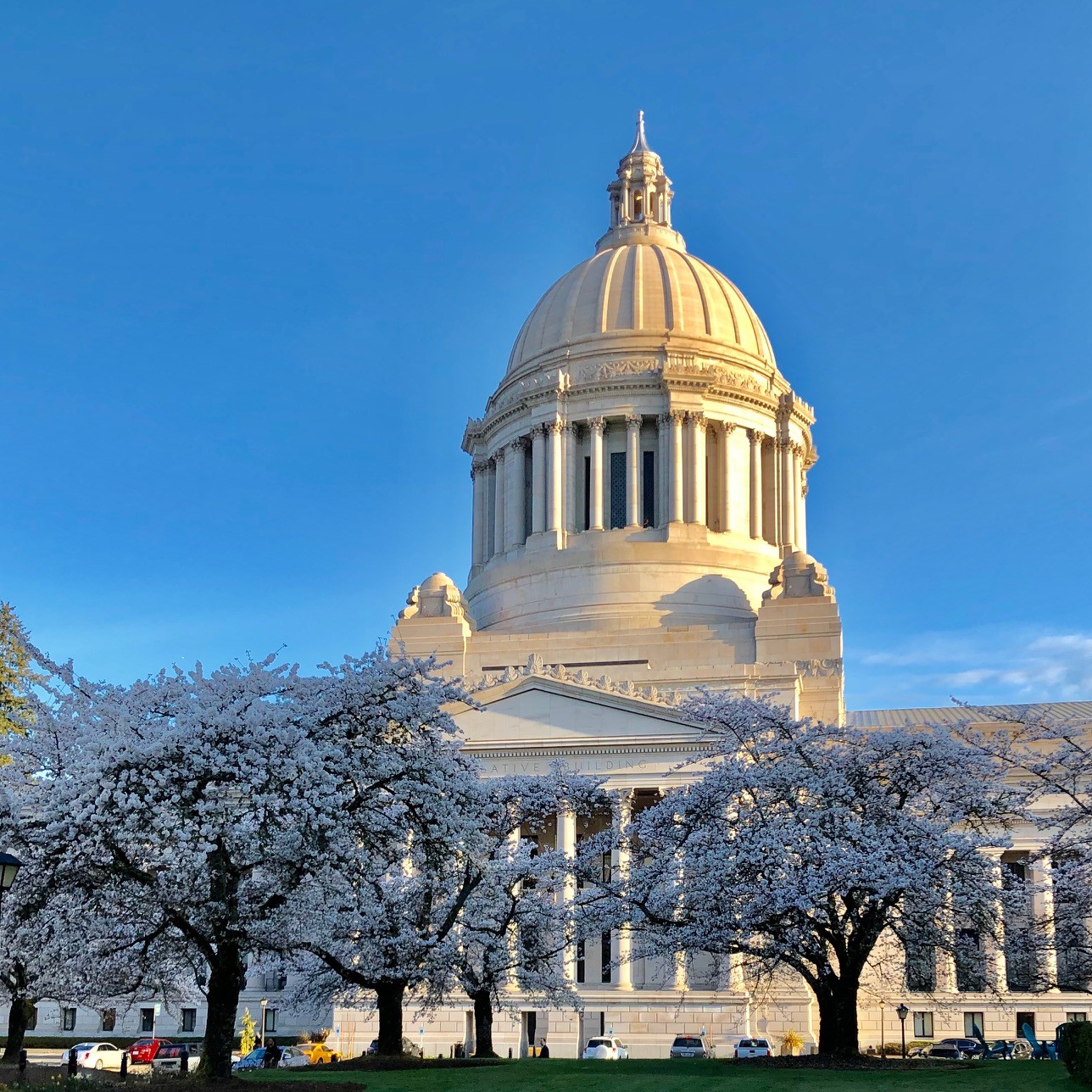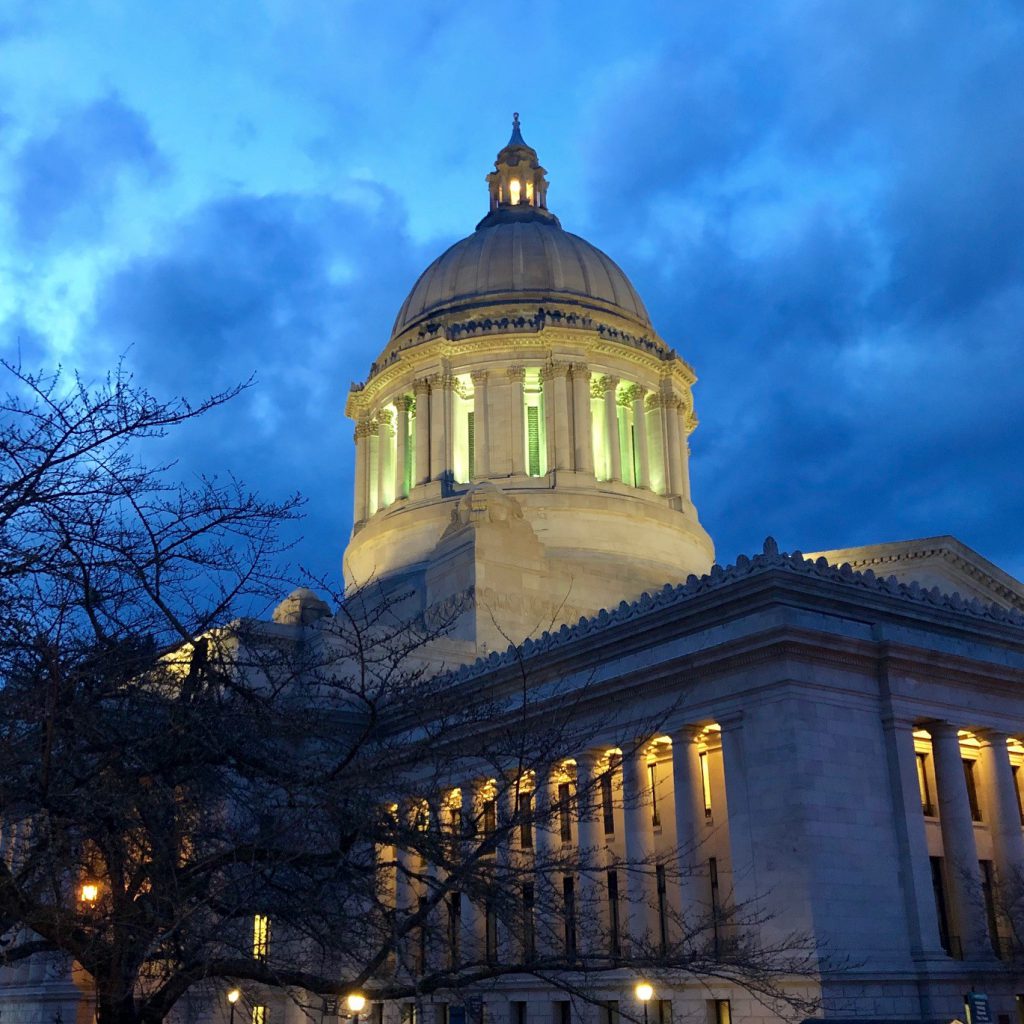February 5, 2021
NFIB Washington Legislative Update | Week 4
State Director Patrick Connor reports from Olympia on the small-business agenda for the legislative week ending February 5.
Small employers will see some modest relief from massive unemployment insurance (UI) tax increases due to the passage of SB 5061. The bill passed the House of Representatives, 89-8, last Friday, January 29. It should head to Gov. Jay Inslee’s desk soon for signature.
In short, the bill will reduce the rate of UI tax increases by capping the social tax component, suspending the solvency surcharge, and extending to five years (from four) the timeframe over which these tax increases are scheduled to occur. The bill relies on no-interest federal loans to bridge the shortfall. This will add some cost to employers, who must repay the loans as part of their UI quarterly taxes. If the loans are not promptly repaid, interest could be assessed and, in a worst-case scenario, our federal tax credit could be lost.
Some have called this a “tax cut” for employers. It is not. Most employers will still see their UI taxes at least double, and together, employers will pay billions more in UI premiums over the next five years. The pain may be a bit less, but it will last longer under this scheme.
Republican efforts to transfer $500 million (of more than $2 billion) in reserves from the state’s “rainy day fund” into the unemployment trust fund were rebuffed by Democrats in both chambers.
#OpenSafeOpenNow
Despite procedural efforts by Senate Republicans to bring SB 5114 to the floor for a vote, it remains stuck in Sen. Sam Hunt’s State Government & Elections Committee.
It was particularly disappointing that Sen. Kevin Van De Wege (D-Sequim) voted against the motion to relieve Hunt’s committee of the bill after having released a strongly worded joint statement with his House seatmates condemning the governor’s re-opening approach.
“… [We] have lost faith that the governor is on a course to safely open Washington and beat COVID-19. He is reopening hot-spot counties based on poorly designed metrics that leave low-rate counties closed. This plan’s senseless punishment of counties with low COVID-19 rates leaves us no choice but to speak out in opposition,” the statement read, in part.
Small-business owners on the Olympic Peninsula, which Van De Wege represents, are no doubt left wondering whether and how the 24th District delegation actually plans to turn their opposition into action.
Environment
- HB 1091 – The governor’s Low Carbon Fuel Standard was heard in House Appropriations this week. Committee Chair Rep. Timm Ormsby has it scheduled for possible executive action next week, signaling the bill is likely to advance despite widespread public opposition. NFIB opposes the bill.
Health Care
- HB 1323 – This legislation is intended to shore up the Long-Term Services and Supports Trust, but the approach taken would be a significant deterrent to participation by self-employed individuals, as NFIB testified this week. Among other changes, the bill would prohibit a self-employed individual who voluntarily enrolls in coverage from leaving the program unless they close the business. For those unfamiliar with it, the Trust is a payroll-tax funded insurance program that will provide qualified recipients with a lifetime benefit of up to $36,500 for certain aging-related, personal-care services and supports. NFIB met with House Health Care & Wellness Committee chair, Rep. Eileen Cody, and assistant ranking member, Rep. Michelle Caldier, about potential amendments that would better address actuarial concerns about enrollment “churn” among self-employed individuals. NFIB testified opposed to the bill as introduced.
Labor
- HB 1308 – The bill would extend the state’s 15% apprentice utilization requirements to municipal public works projects valued at $1 million or more, and subcontracts of $200,000 or more. Small, open-shop contractors face significant difficulties meeting these requirements since most apprenticeship programs in the state are operated by unions. Thus, many small contractors must often sign project labor agreements, unionize, or forego bidding on public works projects. The bill was heard in the House Capital Budget Committee. NFIB opposes the bill.
- HB 1369 & SB 5355 – These companion bills would allow workers to file wage liens on real or personal property, accounts and receivables, owned by an employer, corporate officers, and agents. These liens would apply to community property as well. The bills were heard in their respective labor committees this week. NFIB opposes both bills.
Tax & Fiscal
- HB 1015 – The House Finance Committee this week heard HB 1015, which would allow limited tax credits to certain financial institutions helping to fund rural development loan programs. Two weeks ago, the House Consumer Protection & Business Committee approved the bill, along with an NFIB amendment adding small business representation to the state Department of Commerce grant committee that will administer the program. NFIB supports the bill.
- HB 1095 – NFIB testified before the Senate Ways & Means Committee this week in favor of HB 1095, which would provide a public utility and B&O tax exemption for PPP loans, EIDL advances, and other state or local small-business assistance grants provided during a declared state or federal emergency. The bill passed the House unanimously, and was approved yesterday by Ways & Means. On Friday, the Senate Rules Committee made it eligible for a floor vote. NFIB urges the Senate to pass the bill when it reconvenes on Monday.
- HB 1406 – The House Finance Committee this week also heard a bill by committee Chair Rep. Noel Frame that would impose a wealth tax on our state’s billionaires. The bill would assess a 1% tax on a Washington resident’s global assets in excess of $1 billion. The tax is likely to apply to about 14 individuals, with 10 or fewer paying the bulk of the tax, which could be nearly $5 billion per biennia, according to the fiscal note. The bill’s intent section hints at using some of this revenue, if the bill is enacted, to reduce the state’s regressive taxes on individuals and small businesses. NFIB has not taken a position on the bill.
Previous Reports and Related News
- January 23—Week 2: Legislative Report. House passes NFIB-backed B&O tax exemption for PPP, EIDL loans
- January 15–Week 1: Legislative Report. Senate Bill Would Stop the State from Following the “Roadmap to Ruin”
NFIB is a member-driven organization advocating on behalf of small and independent businesses nationwide.
Related Articles
















